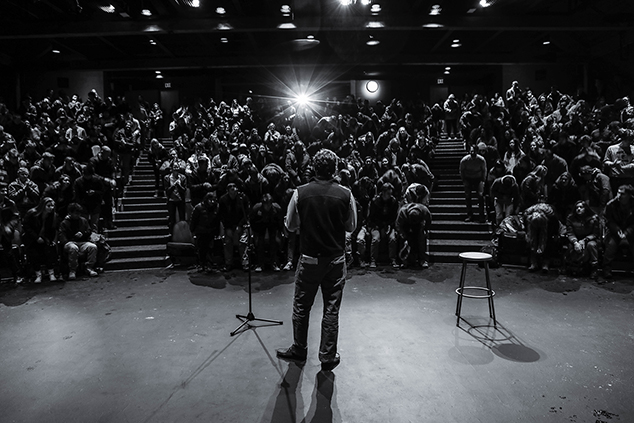
For the past fifteen years, Proctor Academy’s Head of School Mike Henriques has led the school to unprecedented financial health, enrollment numbers, and community engagement. On Friday, January 10, Mike announced his retirement at the end of the 2020-2021 school year, sharing a powerful reflection with the school community through his weekly blog post (read his words at blogs.proctoracademy.org/mikes-notes-tending-the-orchard). Below is an excerpt of a message shared by the Chair of Proctor’s Board of Trustees D. Thomas Healey, Jr. with the school community reflecting on the impact of Mike’s leadership over the past fifteen years:
“Often we find ourselves focused on the immediate, the challenges that enter our daily lives, the little victories we experience on our teams, whether it be in the workplace or on the athletic field. We struggle to zoom out and fully appreciate our role as stewards of something far bigger than ourselves. Today, on behalf of Proctor’s Board of Trustees, I write to share the news that Mike Henriques has decided to retire as Head of School effective at the conclusion of the 2020-2021 academic year. For the past fifteen years, Mike has provided unparalleled stewardship of Proctor’s mission and has consistently helped our school appreciate the immediate without ever losing focus of our collective, long-term stewardship responsibilities of Proctor.
When Mike stepped into his role as Proctor’s Head of School in July of 2005, no one could anticipate the transformation, both in the marketplace and on Proctor’s campus, that would take place over the next decade and a half. In the most competitive independent school landscape any of us have experienced, Proctor’s enrollment has grown by more than 15% during Mike’s tenure. Also, for the first time in the school’s history, we have a balance of gender among our student body this academic year. During the summer of 2006 at a Board Retreat, residential life was identified as an area of focus. With Morton House still standing and a need for more intentional residential life curriculum, Mike helped lead Proctor into a new era of financial stability and investment in residential life. Three new dorms were built, investment in personnel to support residential life initiatives allowed for evolved programming, new synthetic turf fields transformed weekends on campus, five new employee residences, and significant infrastructure upgrades in a new dining hall, gymnasium, fitness center, ski hill, and counseling offices have helped Proctor move forward toward that stated goal. All told, more than $64,000,000 has been raised in cash and pledges since 2005 in support of our endowment, capital projects, and annual fund gifts. More importantly, the community experience at Proctor has been fundamentally transformed through Mike’s leadership and intentional focus on residential life efforts.
This past August, Proctor was recognized by the accreditation committee from the New England Association of Schools and Colleges as one of the healthiest schools they evaluated in 2019. This recognition is the direct result of an incredibly committed group of faculty and staff, however, we would be remiss if we did not acknowledge the role Mike has played in creating a culture of excellence at Proctor. He has worked seamlessly with four different Board Chairs, has provided industry leadership through his role on the NEASC accreditation board, and has helped this community navigate unspeakable tragedy, all with a grace that reassures each of us that it is healthy, and incredibly important, to experience the full range of human emotions when you live and work alongside those you love.
Mike’s honesty, integrity, compassion, and patience have allowed each member of the community to feel cared for within the context of the “whole” of Proctor. He actively seeks to find the best in each person with whom he interacts. This genuine belief in our individual humanity is reinforced by his reassuring presence visiting a class, standing on the sideline of a game, sitting in the audience at a performance, leading a Wilderness Orientation group, or simply pausing to listen to what is happening in our lives. His approach to leadership has laid a foundation of support that permeates all layers of our community, and it is on this foundation that we will steward the next phase of Proctor’s evolution as a school. Proctor is as strong as it has ever been in its finances, enrollment, and in the investment of its faculty, staff, parents, and alumni in its mission. It is from this position of strength we feel fortunate to embark on a search for Proctor’s next Head of School.”